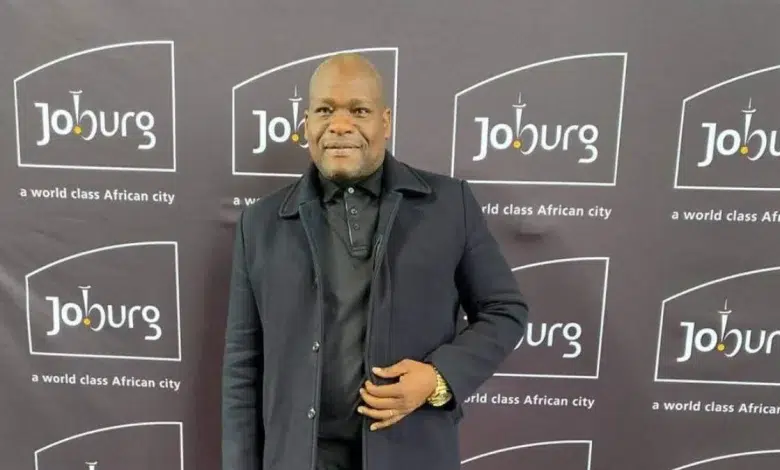Joburg MMC in Hawks’ crosshairs over R186 000 ‘facilitation fees’ from housing developer

The Johannesburg Member of the Mayoral Committee (MMC), Sithembiso Zungu, is at the centre of a serious investigation by the Directorate for Priority Crime Investigation, popularly known as the Hawks. The probe involves allegations of facilitation fees amounting to R186 000 connected to a housing developer. This incident highlights pressing concerns about corruption and governance in the City of Johannesburg.
Table of contents
- What is the role of an MMC?
- What are facilitation fees?
- The Hawks’ involvement
- Who are the Hawks and what do they do?
- Background of the investigation
- Political reactions and public sentiment
- Legal and ethical implications
- Impact on housing development in Johannesburg
- The importance of due process
- What is due process?
- How citizens can respond
- Ongoing monitoring and updates
What is the role of an MMC?
An MMC is a member of the mayoral committee responsible for specific portfolios such as housing, finance, or infrastructure. MMCs play crucial roles in managing city operations and service delivery. Their decisions directly affect citizens’ lives and urban development.
What are facilitation fees?
Facilitation fees refer to unofficial or illegal payments made to accelerate services or approvals. These fees often occur in government or housing developments where stakeholders seek faster or guaranteed outcomes outside legal processes.
The Hawks’ involvement
The Hawks investigate organised crime, corruption, and serious economic offences in South Africa. Their mandate includes probing government officials suspected of abusing power or engaging in corrupt practices. Their involvement signifies the gravity of the allegations against the MMC.
Who are the Hawks and what do they do?
The Hawks, officially known as the Directorate for Priority Crime Investigation, are South Africa’s specialised police unit. Their role is to combat serious organised crime, economic offences, and corruption within government structures. They investigate allegations involving high-ranking officials and public servants suspected of abuse of power or misconduct. The Hawks operate independently from other police units to ensure focused and impartial investigations. Their involvement in cases signifies the seriousness of the alleged offences and the commitment to uphold justice and accountability in public office.
Background of the investigation
The investigation focuses on allegations that the MMC accepted R186 000 in facilitation fees from a housing developer. Such payments, if proven, constitute corruption and undermine trust in the local government’s ability to serve its community fairly.
Zungu says he is innocent and is staying in his role.
“I refute it,” said Zungu in an interview with Daily Maverick. He said that the school refurbishment was delayed by contractor issues and by a soured relationship with the Gauteng government, which is responsible for education and had terminated the school contract.
Political reactions and public sentiment
Political parties, including ActionSA and the DA, have called for the MMC’s resignation. They argue that public officials under such serious investigation should step down to uphold accountability. Citizens express concern about the impact on housing delivery amid corruption accusations.
Legal and ethical implications
Accepting facilitation fees is illegal under South African law, attracting criminal charges including bribery and corruption. Ethically, public officials have a duty to act transparently and fairly. Any deviation damages democratic institutions and public confidence.
Impact on housing development in Johannesburg
The investigation casts a shadow over the city’s housing projects. Corruption risks slowing development and increasing costs, affecting countless families waiting for housing solutions. Transparency in construction and approvals is critical for socio-economic progress.
The importance of due process
While allegations are serious, due process must be observed. The MMC is entitled to a fair investigation and trial if necessary. The Hawks will gather evidence and recommend charges based on proof. This ensures justice and prevents misuse of power.
What is due process?
Due process requires everyone to follow legal rules and procedures to ensure fairness. The law gives individuals the right to be informed of charges, access legal representation, present evidence, and challenge accusations. Courts and officials must provide a fair, impartial hearing or trial. This process protects the accused’s rights and prevents the state from punishing arbitrarily. By upholding due process, authorities maintain trust in the justice system and make decisions based on evidence, not bias or pressure.
How citizens can respond
Residents are encouraged to stay informed, demand transparency, and report corruption attempts. Engaging with local governance and civil society can strengthen accountability. Awareness campaigns help prevent bribery and support ethical leadership.
ALSO READ: Ford South Africa Retrenches 474 Workers Amid Backlash from NUMSA Union
Ongoing monitoring and updates
This investigation highlights the ongoing challenges of corruption in local government, especially within critical sectors like housing. Ensuring integrity and transparency is essential to rebuild public trust and guarantee fair service delivery. As the Hawks continue their probe, it reminds us all of the importance of holding public officials accountable. Staying informed and engaged helps communities contribute to a governance culture that values honesty and due process above all. This case underscores the need for integrity in public office, especially in critical sectors like housing. It serves as a reminder that fighting corruption is vital for building just and equitable communities.



